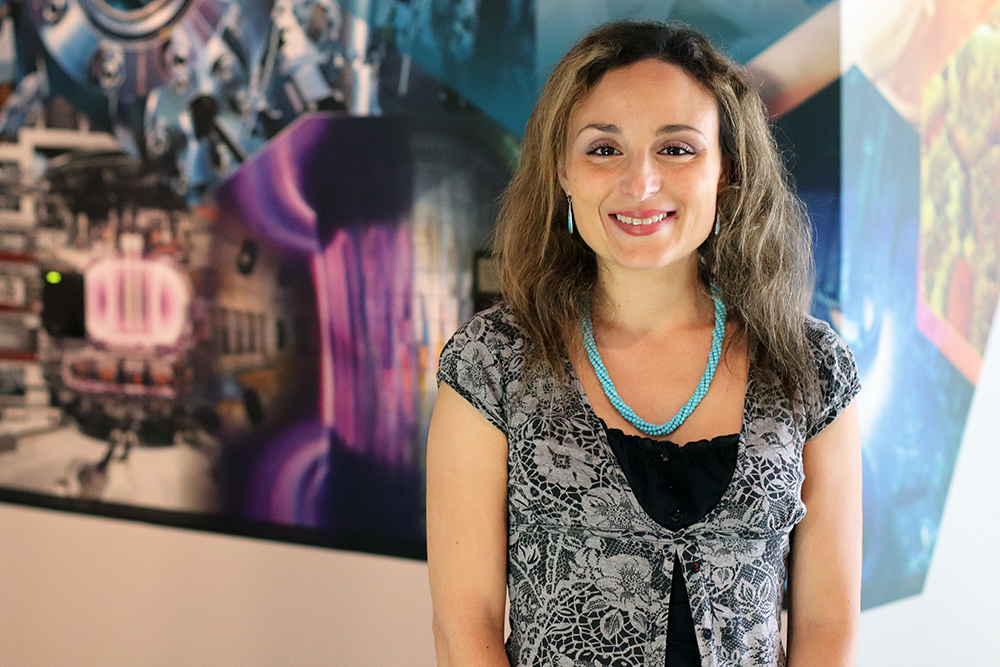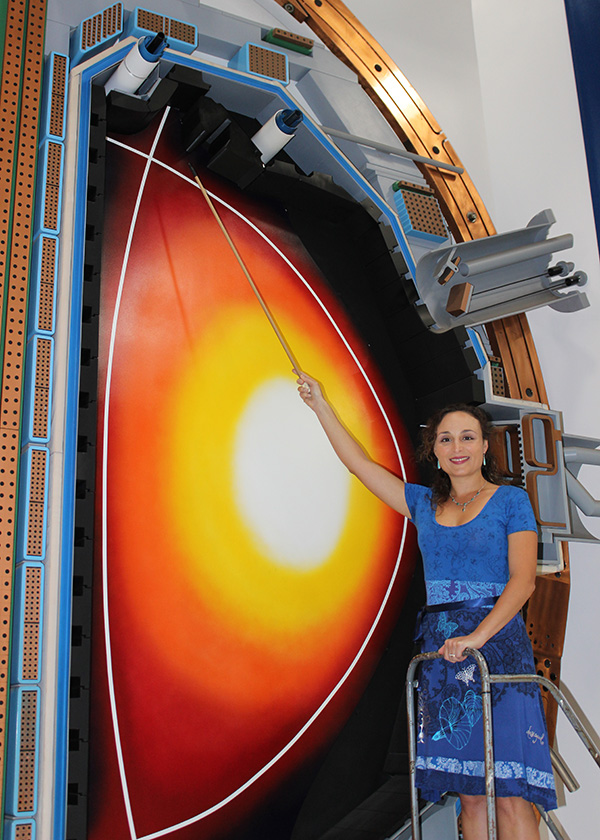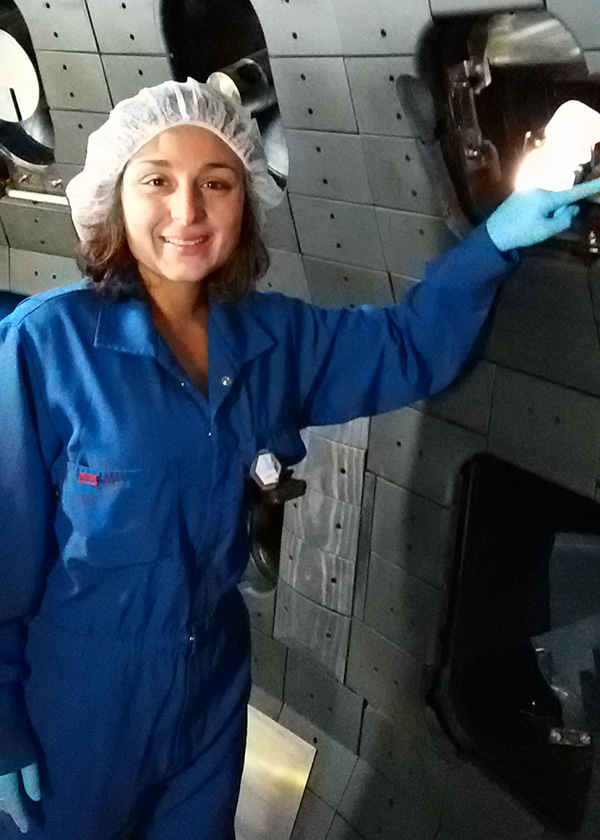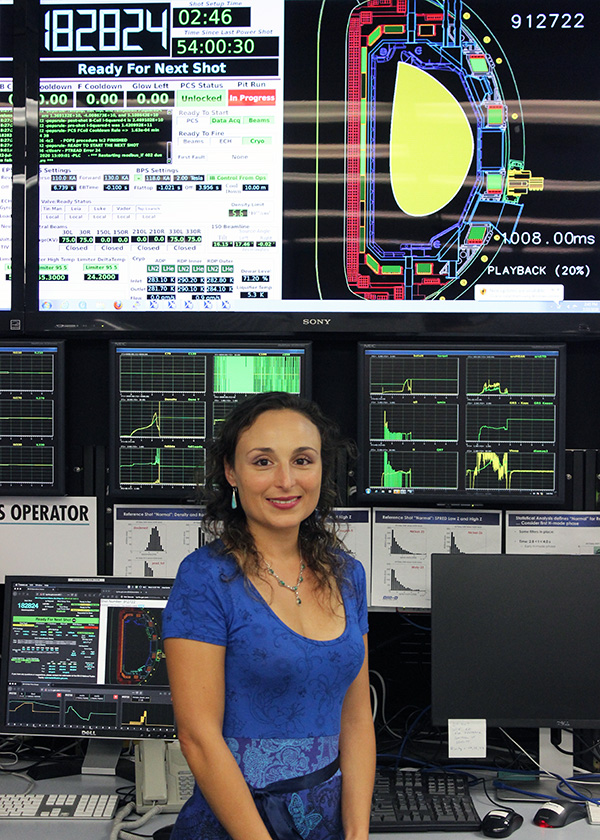Zinkle Faculty Fellow and ITER Fellow Livia Casali has been selected as a 2022 US Department of Energy (DOE) Office of Science Early Career Research Program awardee for her ground-breaking work related to fusion energy.
“I’m extremely honored to have received such a prestigious recognition, which will enable significant advancements in harnessing energy from nuclear fusion,” said Casali, who is an NE assistant professor. “Years ago, I decided I wanted to dedicate my work on fighting climate change and make fusion energy a reality. Today my work is particularly dedicated to unravel the most important and difficult challenge in fusion energy research: integrating the hot core with the cold plasma edge.”
That particular issue, known as core-edge integration, deals with the need to get temperatures in the core hot enough so that plasma is produced, but doing so in a way that the edges of the vessel containing the plasma don’t degrade and impair the fusion reaction.
The reaction takes place in a type of fusion chamber known as a tokamak, which uses a high-powered magnetic field to contain and control plasma thanks to the electromagnetic nature of the charged particles in plasma itself.
Because the core and the edge of the plasma are governed by different physics, understanding how these regions interact and can be integrated together represents an extraordinary challenge encompassing a wide range of spatial scales and a broad energy and temperature range. As such, this represents a critical step toward fusion and the clean and limitless source of energy that it provides.
“This important recognition will enable me to tackle this outstanding challenge with a novel strategy where I will combine experimental activities, physical interpretation, and the development of a new tool for an integrated, high-fidelity modeling approach that will enable self-consistent transport studies from the edge to the core,” said Casali. “This project will pioneer novel, innovative territory in the multi-phase, multi-scale challenge of integrating the tokamak core-edge-plasma domain.”
In addition to explore new experimental domains, other key parts of her DOE-funded project, “Innovative Core-Edge Solutions for Tokamaks,” are providing new modelling in core-edge plasma integration and applying the knowledge they gain to get feedback on current experiments and planning future ones.
Casali said such work would provide the science community with a more complex and comprehensive understanding of the physics involved and in the intricate and complex processes that take place in fusion production, further improving its chances to become economically viable.
Making fusion a commercially-available reality is something that she has built a wealth of knowledge about over her career, even prior to coming to UT in 2021, work that includes her being named an ITER Scientist Fellow earlier this year. ITER, officially the International Thermonuclear Experimental Reactor, is a tokamak sponsored by the US and several other countries and is the largest scientific experiment in the planet’s history.
Casali also spent several years working on DIII-D, the largest tokamak in the US, with General Atomics, as well as working at another renowned tokamak ASDEX Upgrade at the Max Planck Institute for Plasma Physics in Germany.
- A full size scale model of the cross section of the DIII-D tokamak
- Livia Casali works on the diagnostic calibration inside the vessel of the DIII-D tokamak.
- In the control room of the DIII-D tokamak
The Early Career Research Program began in 2010 as a way to boost the research of scientists early in their careers in the fields of advanced scientific computing research, basic energy sciences, biological and environmental research, fusion energy sciences, high energy physics, nuclear physics, isotope research and development and production, and accelerator research and development and production.



